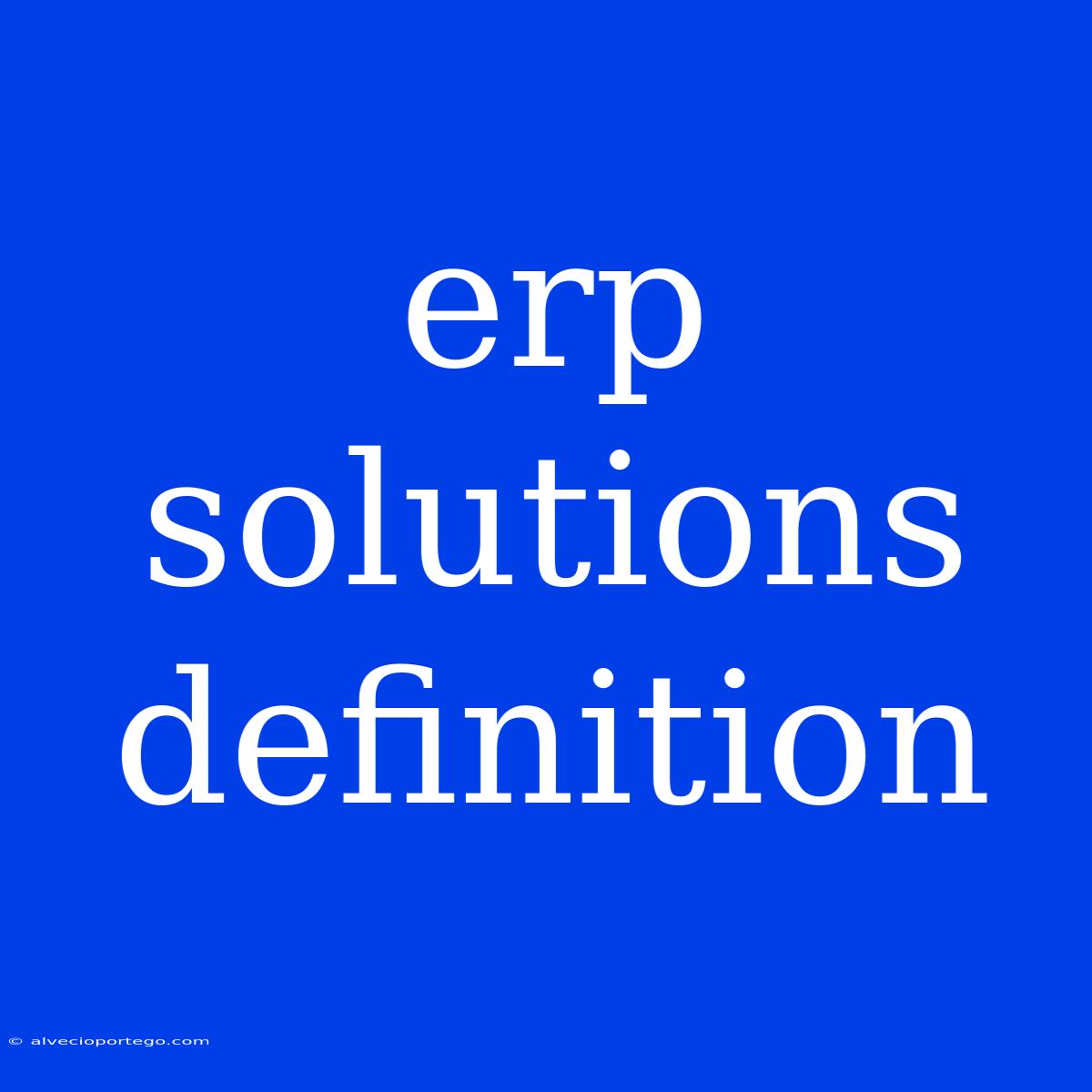ERP Solutions: Definition and Understanding the Fundamentals
Enterprise Resource Planning (ERP) solutions are comprehensive software systems designed to manage and integrate various business processes within an organization. They act as a central hub for data, automating and streamlining critical functions across departments, ultimately improving efficiency, visibility, and decision-making.
What are the key components of an ERP system?
ERPs typically encompass a wide range of modules, including:
- Financial Management: Accounting, budgeting, financial reporting, and forecasting.
- Human Resources: Payroll, talent management, recruitment, and training.
- Supply Chain Management: Procurement, inventory control, warehousing, and logistics.
- Customer Relationship Management (CRM): Sales, marketing, customer service, and support.
- Production Management: Manufacturing, planning, scheduling, and quality control.
How do ERP solutions work?
ERP solutions work by centralizing data from different departments into a single, integrated system. This allows for real-time information sharing, eliminating data silos and enabling informed decision-making based on accurate and up-to-date data.
For example, an ERP system can track inventory levels, automate purchase orders, and update sales data in real-time, ensuring a seamless flow of information across the supply chain.
Benefits of implementing an ERP solution:
- Improved efficiency and productivity: Automating manual processes and streamlining workflows.
- Enhanced visibility and control: Providing real-time insights into business operations.
- Increased accuracy and reduced errors: Minimizing manual data entry and eliminating inconsistencies.
- Better decision-making: Enabling data-driven insights for strategic planning.
- Improved customer satisfaction: Streamlining customer interactions and enhancing service delivery.
- Cost savings: Reducing operational costs and optimizing resource allocation.
Choosing the right ERP solution:
Selecting the right ERP solution is crucial for achieving optimal results. Key factors to consider include:
- Business size and industry: The solution should be scalable and cater to the specific needs of the industry.
- Budget and resources: The cost of implementation and ongoing maintenance should be aligned with available resources.
- Functionality and features: The system should offer the necessary modules and features to support critical business processes.
- Integration capabilities: Compatibility with existing systems and software is essential for seamless data flow.
- Vendor reputation and support: Choosing a reputable vendor with strong customer support is vital for successful implementation.
Conclusion:
ERP solutions play a critical role in enabling organizations to optimize their operations, improve efficiency, and achieve strategic goals. By understanding the definition, key components, and benefits of ERP systems, businesses can make informed decisions about selecting and implementing the right solution for their specific needs.

